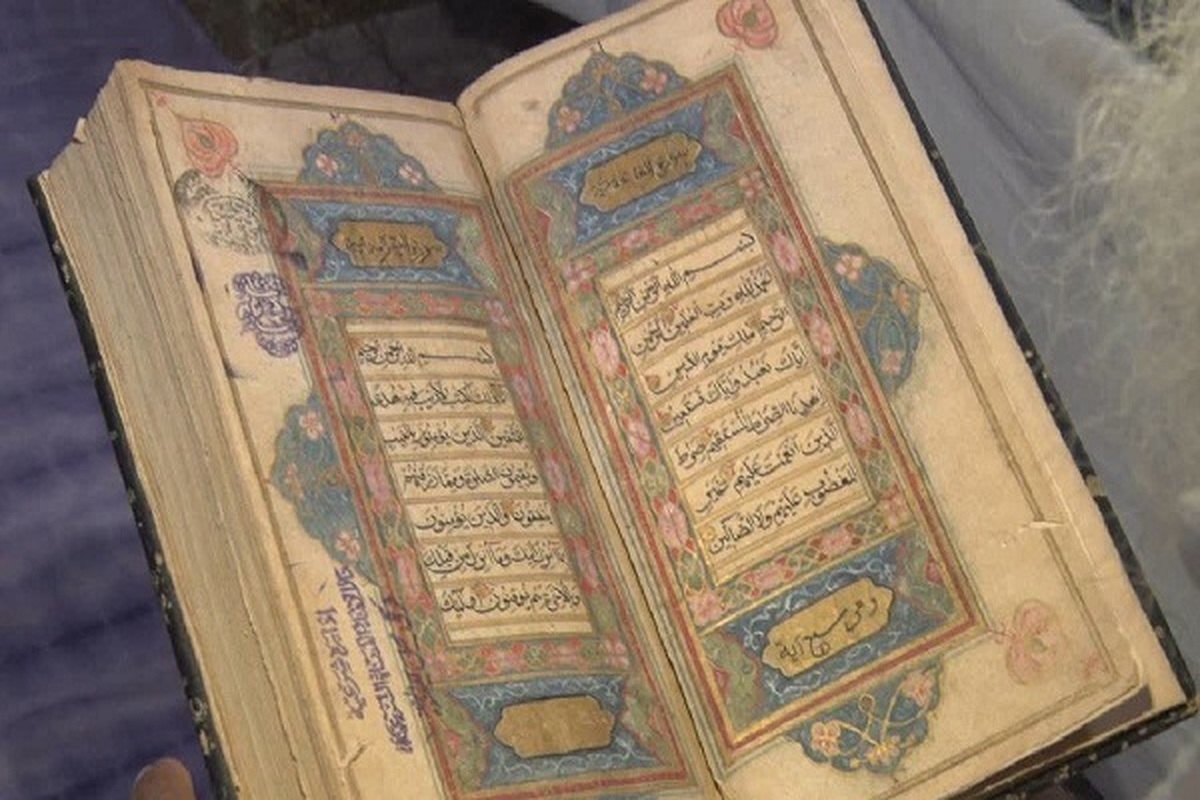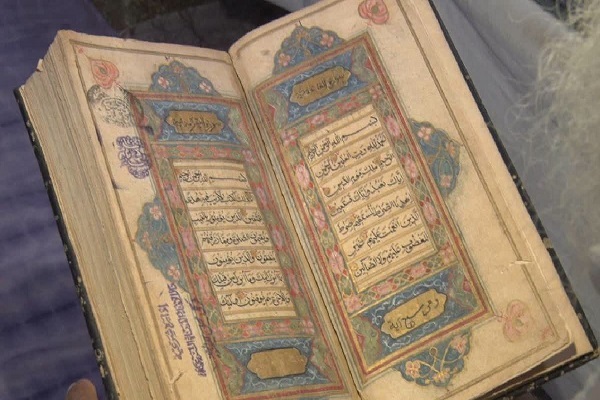Lucknow’s 17th Century Quran Written in Gold Links Past to Present


In the historic streets and mansions of Lucknow, the city of Nawabs, history still breathes. The unique Quran, 340 years old and written in gold ink, is carefully preserved in the Farangi Mahal. This monument, where the light of knowledge once spread, also bore witness to the struggle for culture, education, and freedom.
Farangi Mahal is situated between Victoria Road and Chowk in Lucknow. Its name, 'Farangi' meaning 'foreigner,' was given because its first owner was a Frenchman named Neil. He lived there with other French merchants during the reign of the Mughal emperor Aurangzeb.
Later it came under the possession of Aurangzeb's advisor Mullah Asad bin Qutub Shaheed and his brother Mullah Asad bin Qutubuddin Shaheed.
Both brothers transformed it into a grand Islamic institution, which was often compared to Cambridge and Oxford University of England. Mahatma Gandhi also spent some days in Farangi Mahal. The room where he stayed has been dedicated to his memory. Farangi Mahal has played an important role in the preservation and growth of Islamic culture and traditions in India.
Mufti Abul Urfan Farangi Mahali, a resident of Farangi Mahal, possesses this holy book. Every verse of this 744-page Quran is written with gold ink. Its edges are adorned with beautiful carvings of golden flowers.
The Mufti states that while the Quran has attracted bids for millions, it is more than just a book—it is a sacred trust. "Forget selling it, we avoid even touching it so that its letters do not get erased," he says. Researchers and foreigners frequently visit to see it.
Mufti Abul Urfan explains that the Quran is not merely a manuscript but a symbol of the era when kings and nobles patronized the writing of scholarly books with gold and silver. This was the same period when Mulla Nizamuddin came to Lucknow on the orders of Aurangzeb Alamgir and laid the foundation for scholarly pursuits in the city, commissioning this golden Quran.
Read More:
Faizan Farangi Mahali of Farangi Mahal said: “It is a matter of great pride for us that such a heritage is in our house. People from the country and abroad come and say show me the gold Quran.”
“We are the 8th generation of Mulla Nizamuddin. He got this Quran written, since then till today it is present in our house,” he added.
Farangi Mahal got divided into many families. All of them have different personal libraries and there are precious books in them which cannot be found in the market.
Farangi Mahal, now divided among many families, once had a reputation as the "Cambridge of India," with students from Persian Gulf countries traveling there for education. Dr Mishkat Farangi Mahali recounts a story about a person from Saudi Arabia who brought his son to study. When the Maulana said he didn't have time, he was asked when he could teach. The Maulana responded, "At the time of Tahajjud Namaaz (the night prayer)," after which the man began bringing his son at night for lessons.
Farangi Mahal also played a crucial role in India's independence movement. Dr. Mishkat highlights, "Farangi Mahal is the place where Maulana Abdul Bari Farangi Mahali had issued a fatwa in the presence of Gandhiji, raised the voice of Hindu-Muslim unity. Gandhi, Nehru, Sarojini Naidu, Maulana Azad all came here and became part of the political and social activities of this family".
Today, though the building is in a dilapidated condition and Farangi Mahal has been fragmented, this golden Quran serves as a powerful reminder of its glorious past. The book is a remarkable confluence of writing, culture, and history. The golden words of this Quran remind everyone that heritage should be cared for and protected for future generations.
Source: etvbharat.com



